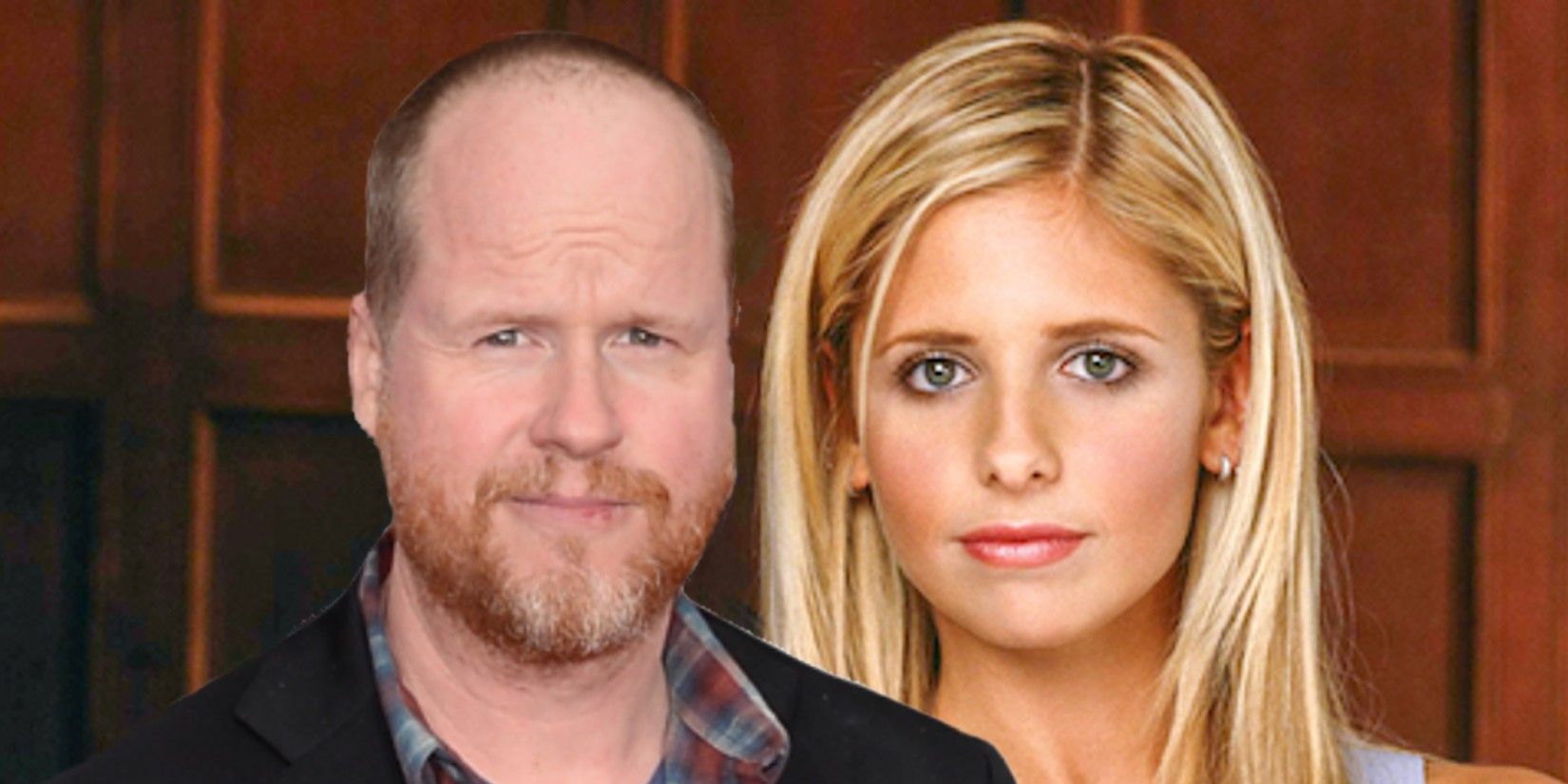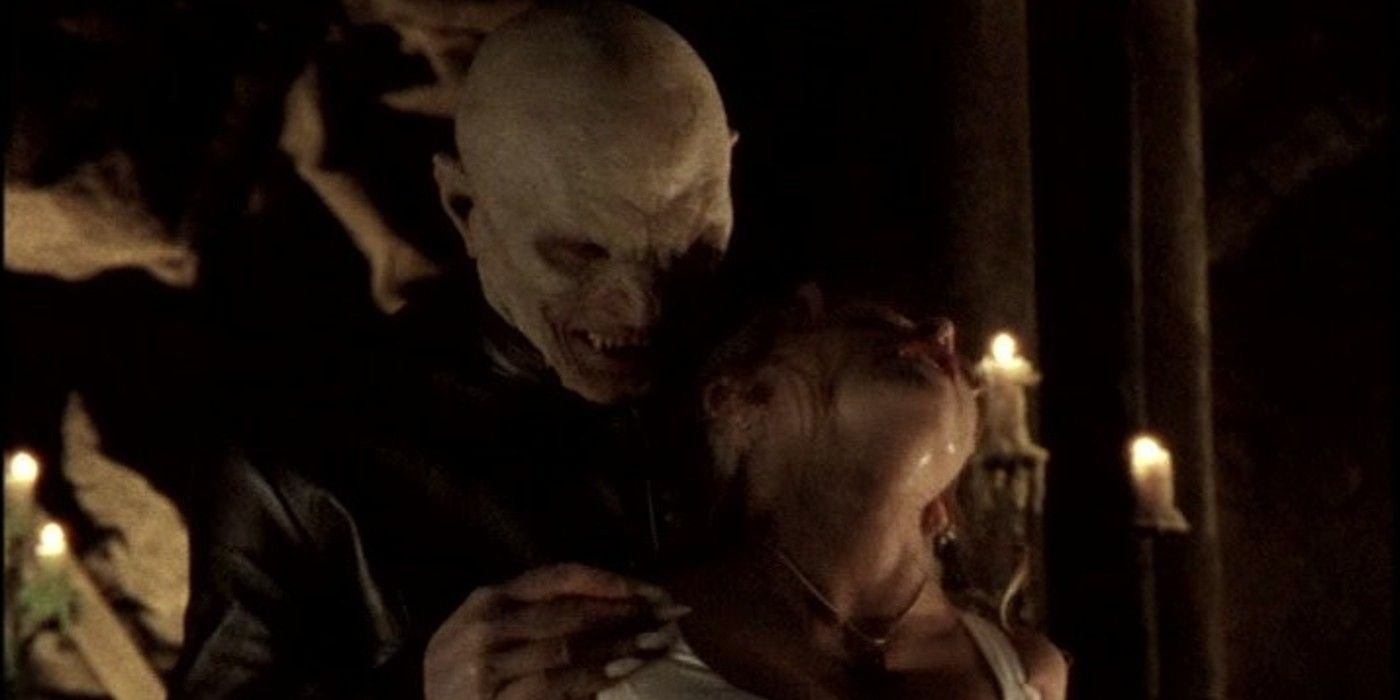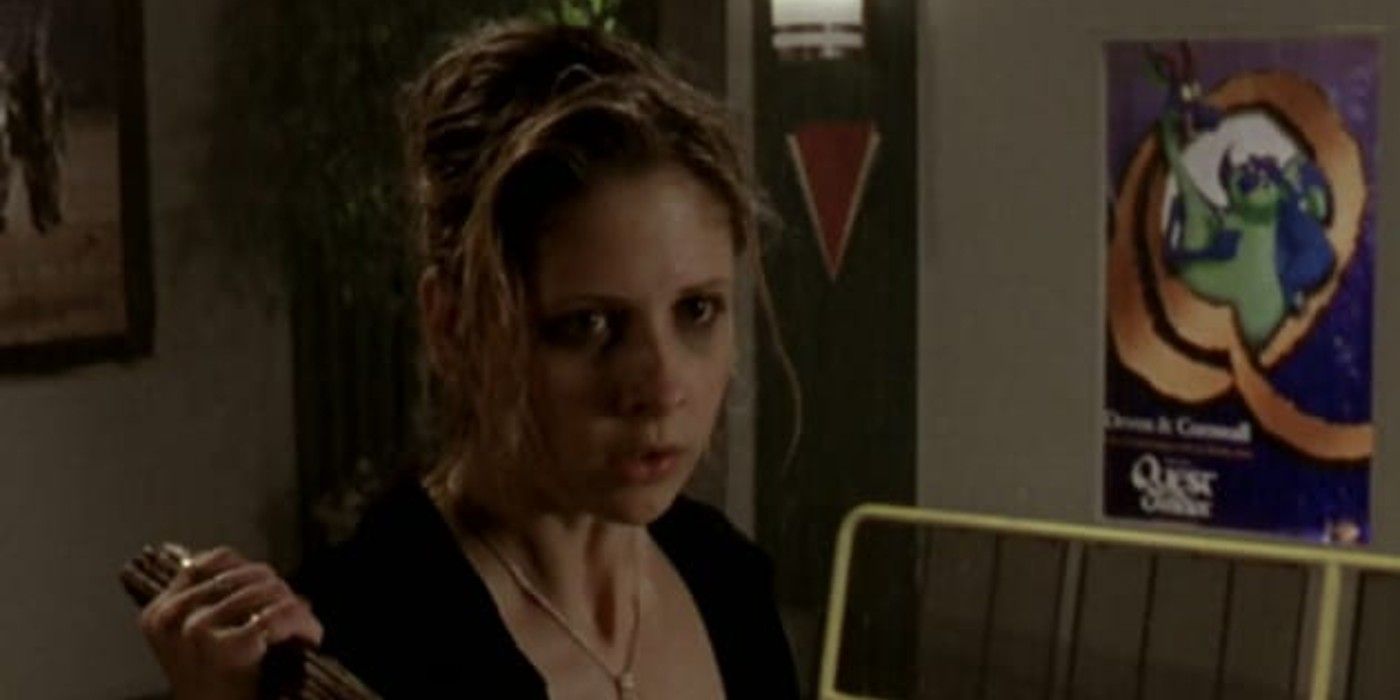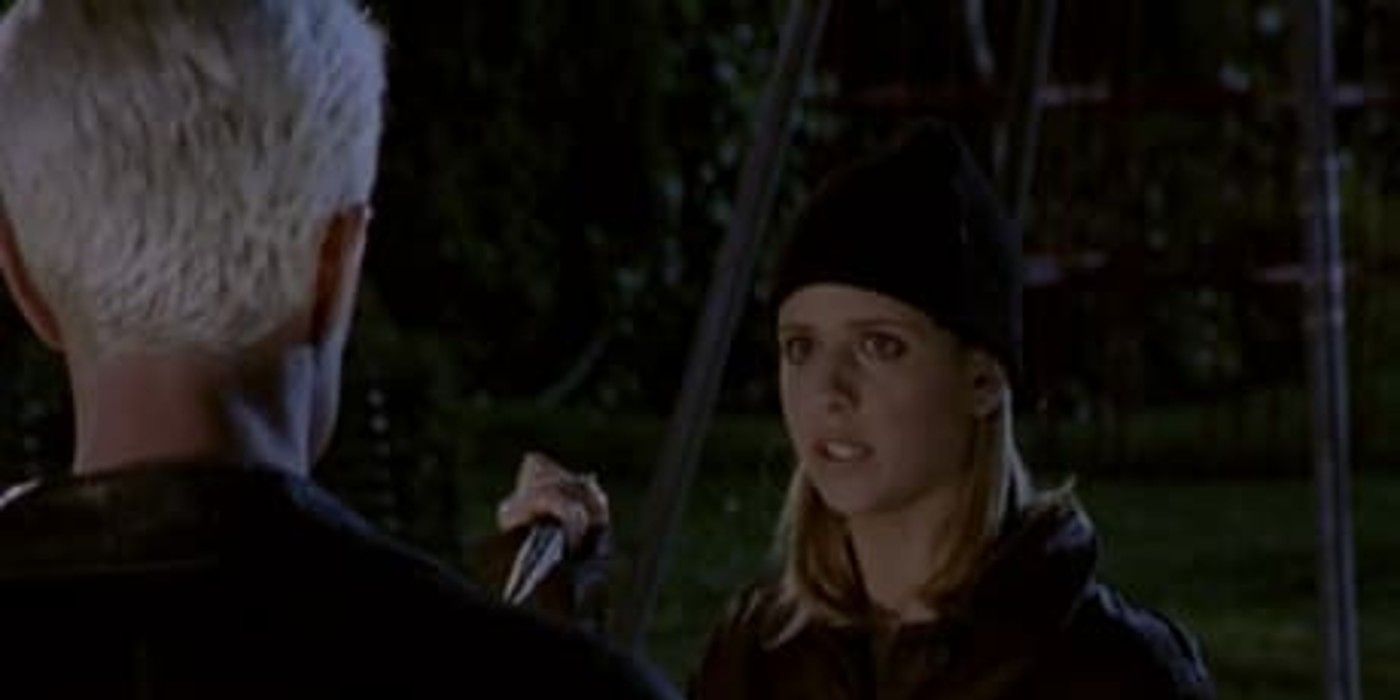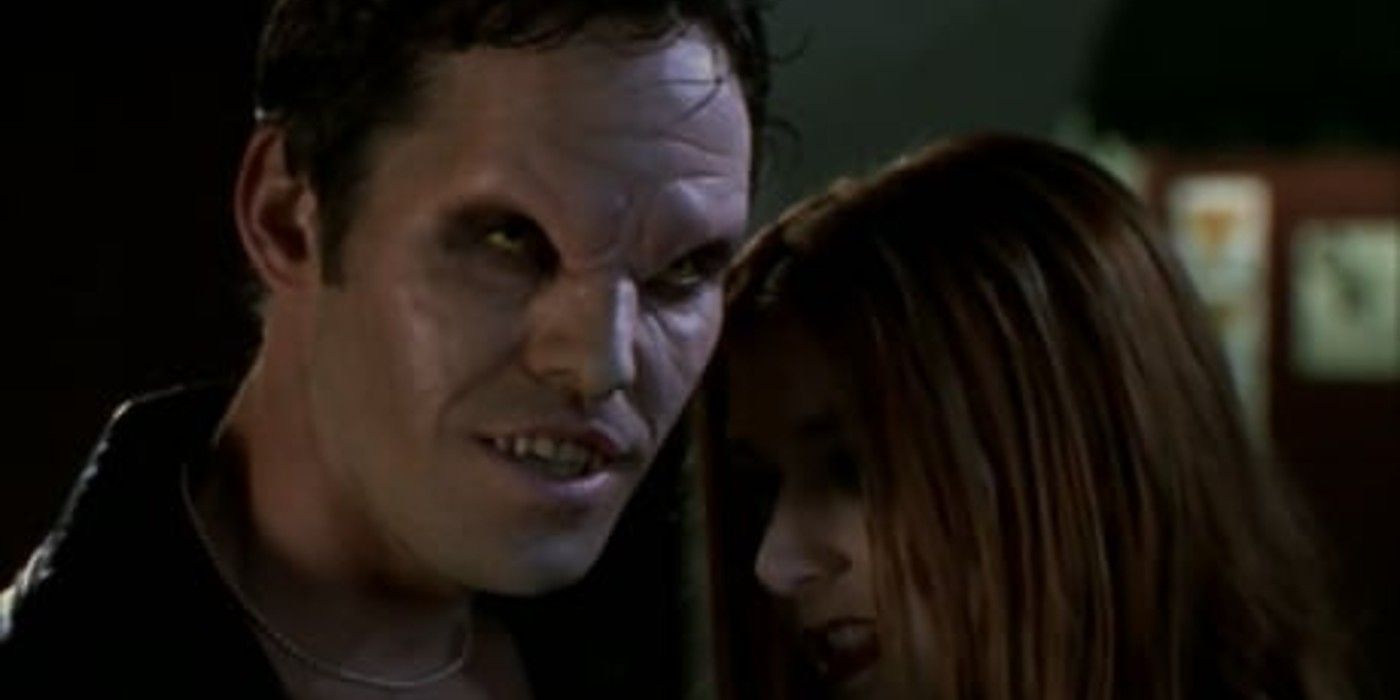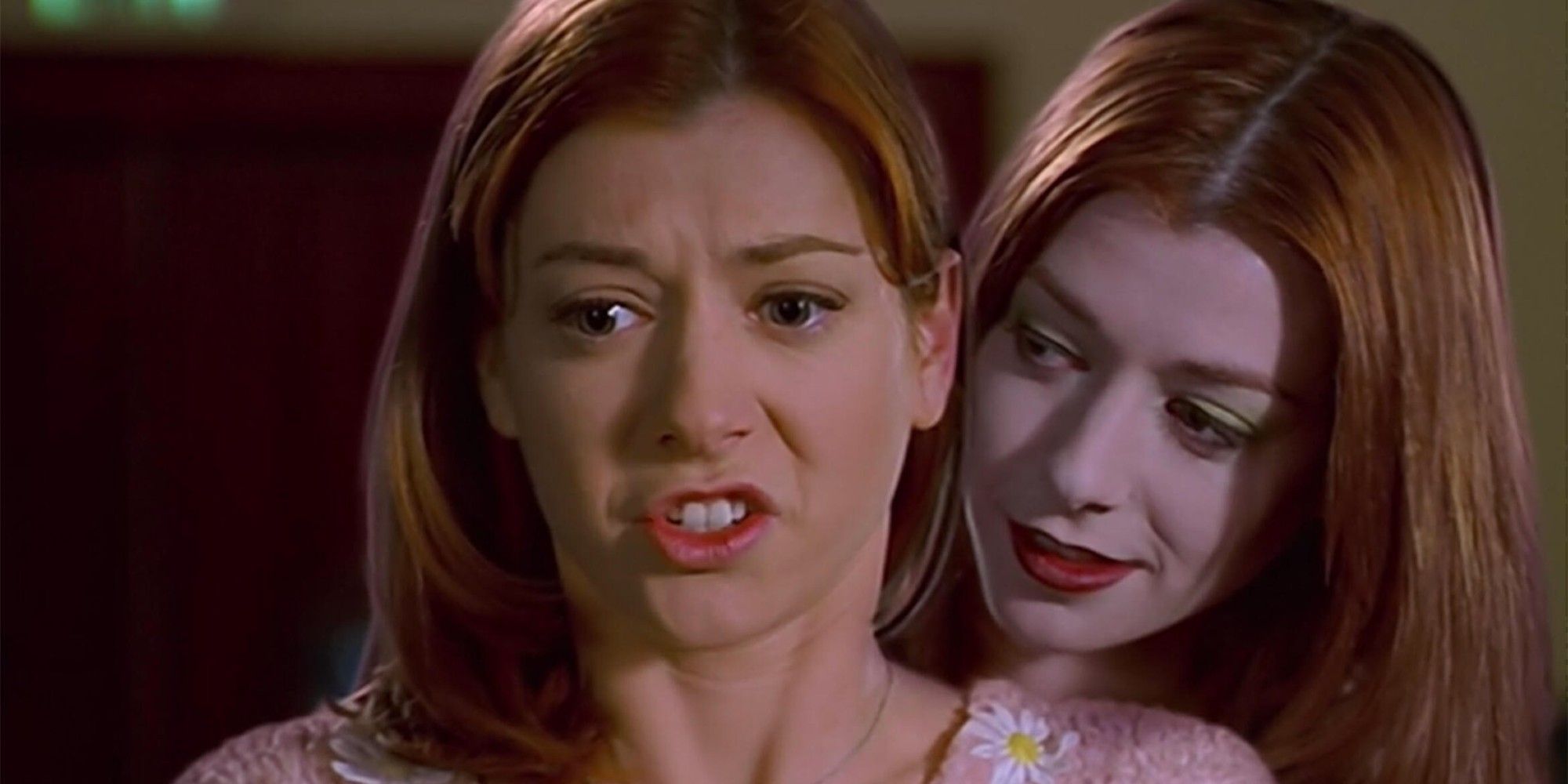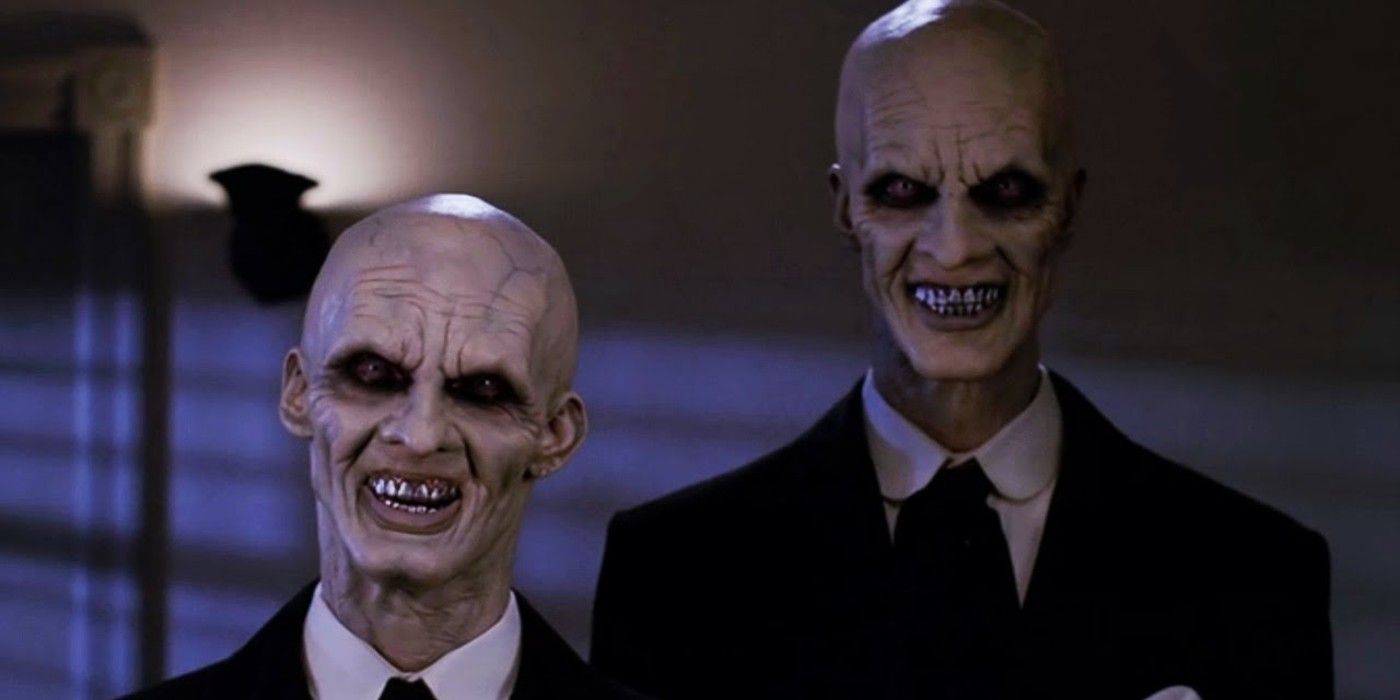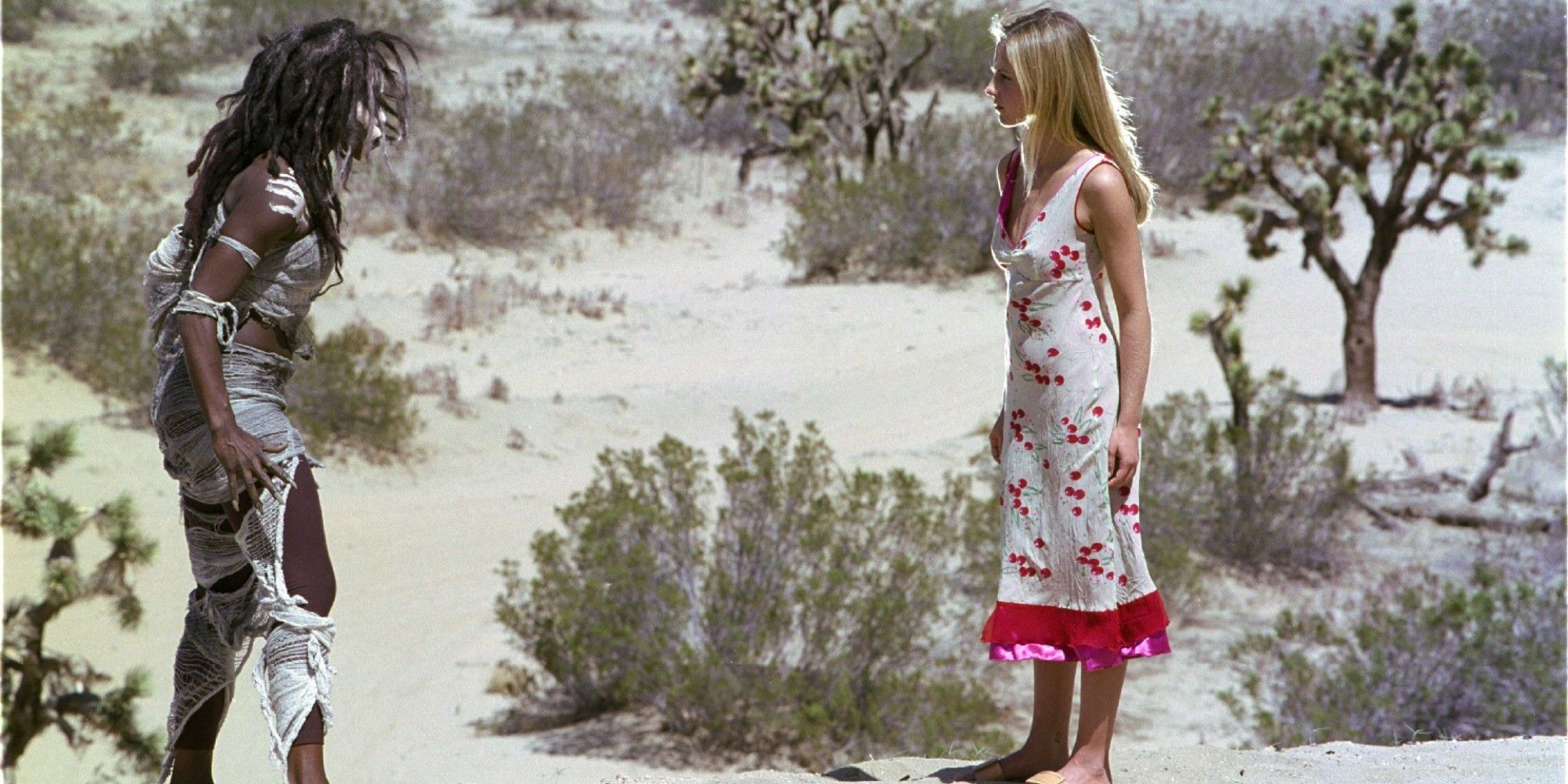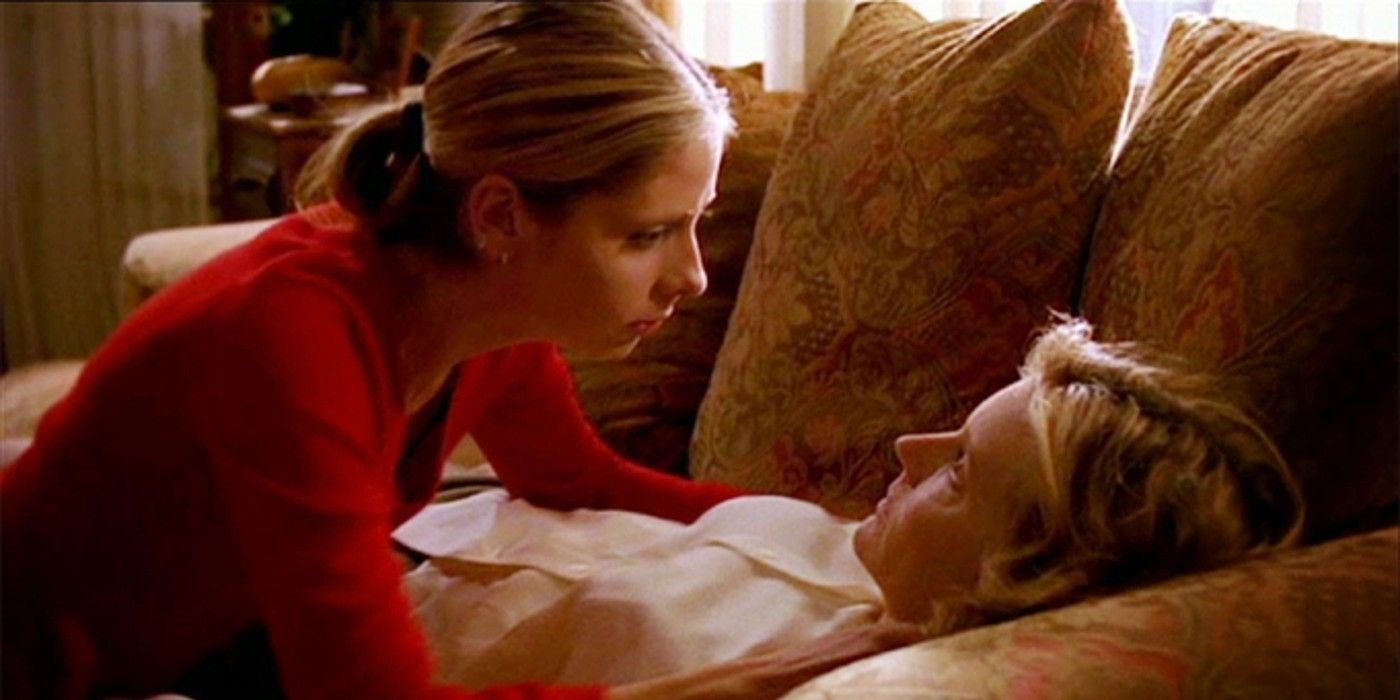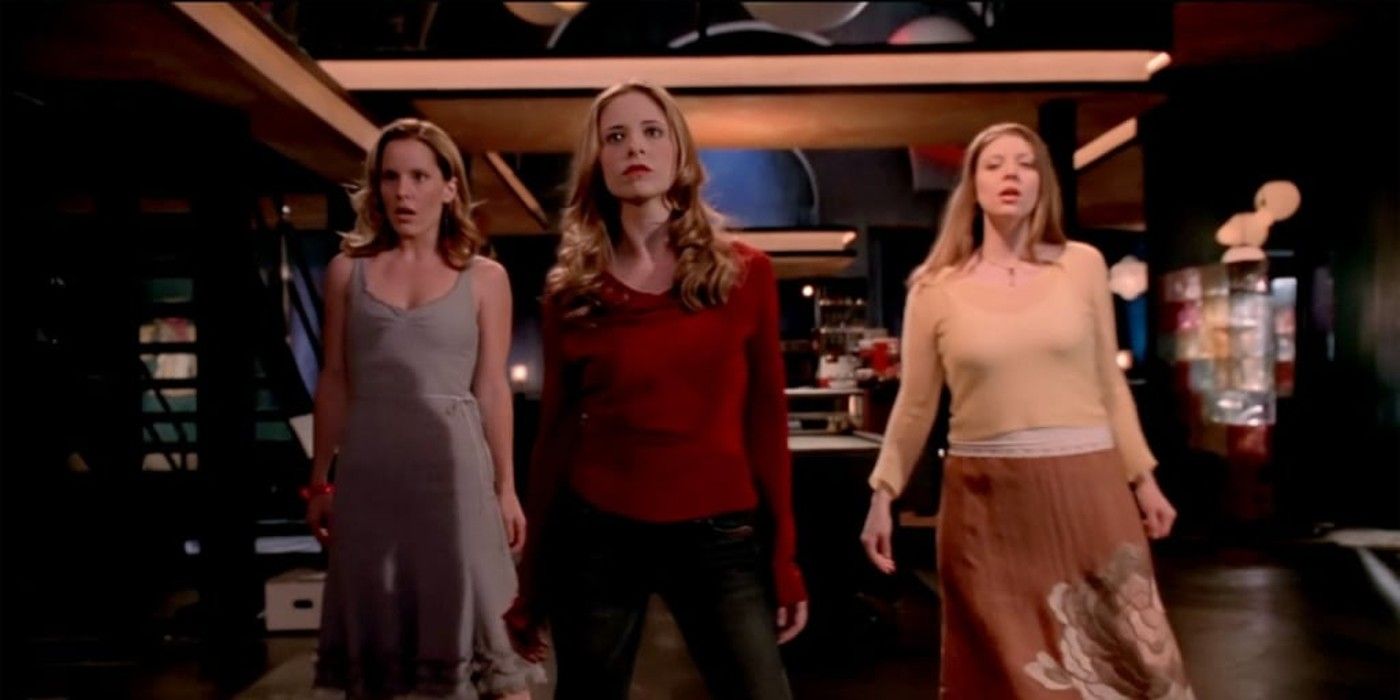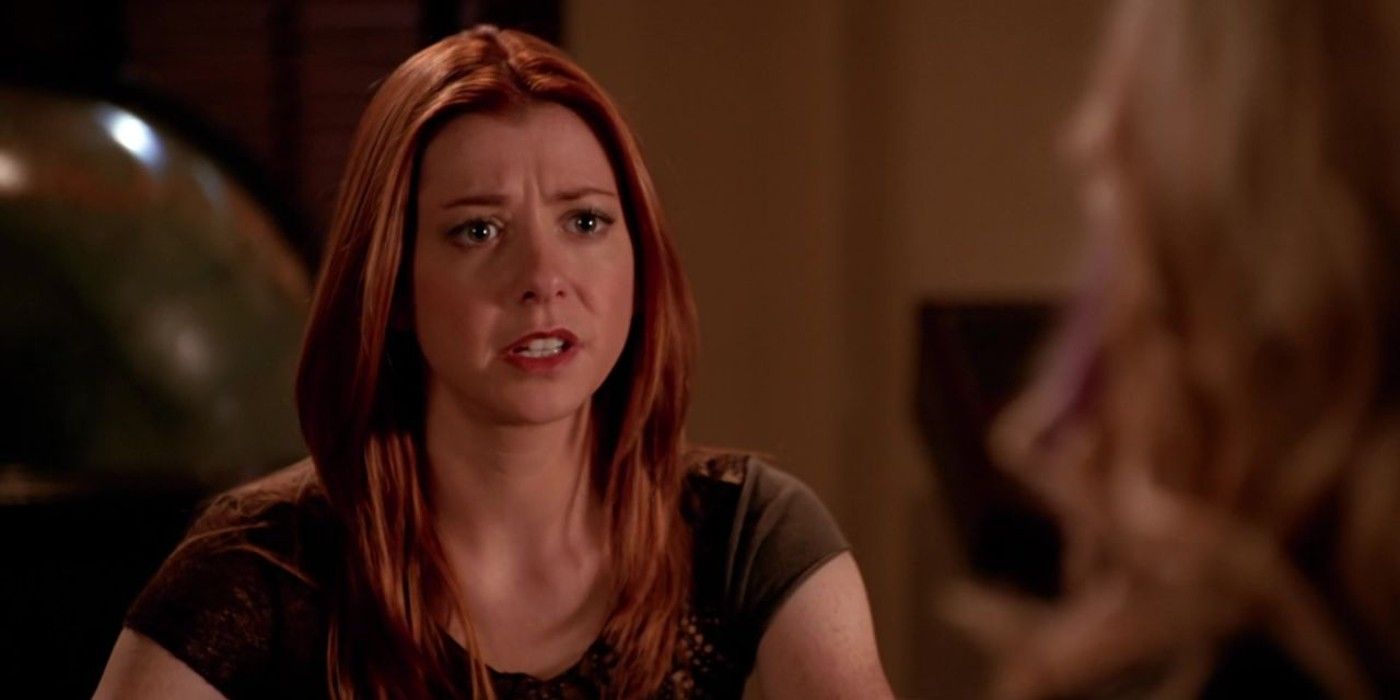Buffy the Vampire Slayer premiered on March 10, 1997, and everyone who has seen all seven seasons of the show has a few episodes on their list of favorites, but what episodes are creator Joss Whedon's top picks? Buffy centers around a teenage girl who discovers she is the prophesied "Slayer", tasked with keeping everyone safe from demons and other supernatural creatures and forces that are constantly working to end the world. Throughout the show's seven-season run, audiences watched Buffy (Sarah Michelle Gellar) grow up and show everyone that a young teenaged girl, and then a woman in her early 20s, could be a superhero.
Buffy the Vampire Slayer was a reimagined version of Whedon's original Buffy the Vampire Slayer film. His design stemmed from one particular idea he had where a little blonde girl and a monster walk into a dark alley, and the young girl, as Whedon put it, is "not only ready for him, she trounces him." He was tired of watching horror movies and seeing the girl always getting killed, so he decided to tell a different kind of story.
As a result of Whedon's creation, an entire generation of young women finally got to grow up watching the little blonde girl kick the monster's butt for a change. Buffy the Vampire Slayer has 144 episodes, and here are Whedon's top favorites.
Season 1, Episode 12, "Prophecy Girl"
In "Prophecy Girl," the titular slayer is trying to prevent the Master (Mark Metcalf), Buffy the Vampire Slayer’s first Big Bad, from returning to power. Buffy is 16 at the time, and the episode is particularly emotionally powerful. Giles (Anthony Head) discovers a prophecy saying that Buffy is going to be killed at the hands of the Master. Buffy still makes the decision to try and stop the Master. She is killed by the but is thankfully revived by Xander (Nicholas Brendon) and Angel (David Boreanaz) through CPR. She stops the Master and saves the world. Whedon loves this episode because Buffy proves herself. Undisputedly, Buffy is the Slayer. She saves the world, closes the Hellmouth, comes back from death, and stops the Master.
Season 2, Episode 14, "Innocence"
In "Innocence," Buffy and Angel have sex, which results in the 271-year-old Angel having his first moment of true happiness in the hundred years since he got his soul back. The curse is designed to take his soul away again if he ever has a moment where he feels truly happy. After he and Buffy sleep together, he has his soul taken away again because of his love for Buffy.
Whedon is a fan of this episode because Buffy's decision to sleep with Angel, her vampire boyfriend, is the catalyst for the phenomenal second half of the second season, but the episode does more than just that. It also marks a distinct shift with Buffy who has to suffer as Angelus mentally tortures her and physically tortures her friends. Sex is often used to distinguish that a person is growing up, but it goes much further for Buffy who now must be responsible for slaying the man that she loves (soon to get his own spinoff, the Angel TV show), as the demon inside of him goes on a vicious rampage because she doesn't know how to bring Angel's soul back.
Season 2, Episode 22, "Becoming: Part 2"
In "Becoming: Part 2," Buffy teams up with Spike (James Marsters) in order to stop Angel who is intent on destroying the world. Willow (Alyson Hannigan) manages to restore Angel's soul at the very last minute, but unfortunately, it is too late. This results in an absolutely gut-wrenching moment when Buffy is forced to kill Angel just as his soul is returned. Buffy cries as she gives Angel one last kiss before stabbing him, sending the now souled Angel to Hell. Buffy then runs away from Sunnydale.
This is a Whedon top 10 because it is soul-destroying, and like the rest of the series, he’d likely recommend against watching the HD version of this Buffy episode. It makes the audience feel things they haven't had to in Buffy (yet). Angel was sucked into a void and sent to Hell just as Willow had used a spell to bring back his humanity. They were too late.
Season 3, Episode 9, "The Wish"
Written by Marti Noxon, the wish is a literal representation of the trope, "be careful what you wish for." An upset Cordelia is struggling to come to terms with her and Xander's breakup. Cordelia's former friends refuse to accept her back into the group, and she feels that everything bad that has happened is because Buffy arrived in Sunnydale. Vengeance demon Anya (Emma Caulfield) puts her necklace onto Cordelia, and Cordelia (a well-cast Charisma Carpenter) unknowingly wishes Buffy hadn’t come to Sunnydale. Anya makes Cordelia's wish come true. This results in a parallel universe in which Sunnydale is overrun by demons.
Whedon chose this episode because it is the first time the audience meets Anya. "The Wish" also gives viewers a vampire Willow who essentially contrasts Willow's specific character traits in almost every way, which Whedon greatly appreciates. Whedon also likes the way the episode shows that Sunnydale and the world need Buffy and that wishing she had never arrived in Sunnydale was an awful idea.
Season 3, Episode 16, "Doppelgangland"
"Doppelgangland" sees both a normal Willow and a vampire Willow trying to stop one another as two alternate universes collide. Buffy and Faith (Eliza Dushku) are put through tests after Faith mistakenly murders a human she thought was a vampire. Willow agrees to use her powers to help Anya with a spell. During the spell, Willow sees a vision of the wish-verse world and accidentally messes up the spell, bringing her vampire counterpart from the wish-verse into the normal universe where the Scoobies are forced to stop her.
After reading why "The Wish" is a Whedon favorite, it should be no surprise that "Doppelgangland," an episode he wrote specifically for vampire Willow, is another one on his list of top 10s. Willow also works directly with Anya in this episode, who is another character Whedon pointed out as a reason for loving "The Wish." While "Doppelgangland" clearly shows how Willow and vampire Willow mirror Buffy and her figurative doppelganger Faith. It is an episode Whedon created because he wanted to see more of vampire Willow, so it makes sense that it's one of his favorites.
Season 4, Episode 10, "Hush"
"Hush" contains one of the Buffy scenes viewers watch most, and it only contains 17 minutes of dialogue even though the episode is 44 minutes long, a stark contrast to the usually dialogue-heavy and quippy Whedon-written episodes. In "Hush," Buffy has a dream about a group of monsters called the Gentlemen, Willow is quietly disappointed in the Wicca group that she joined, and Giles pawns Spike off on Xander for the night. The Gentlemen steal the voices of everyone in Sunnydale. The only way to stop them is for Buffy to get her voice back and scream. It is also in "Hush" when Riley (Marc Blucas) and Buffy discover that they are both more than they appear to be.
"Hush" is the only episode of Buffy to be nominated for a writing Emmy and Buffy monster regular, Camden Toy plays one of the Gentlemen. Whedon used this episode as a challenge to himself because he was beginning to feel like his episodes were relying too heavily on the dialogue he is known for. "Hush" proved to Whedon, and the audience, that he could write an episode with barely any dialogue while also proving that even without being able to speak to one another, the Scoobies could still defeat the episode's villain.
Season 4, Episode 22, "Restless"
"Restless" is the finale of season 4 and is another of the episodes on this list that Whedon wrote. Buffy, Willow, Xander, and Giles are forced into their worst nightmares, forcing them to come to terms with their greatest fears. There is a high level of detail in this episode, and it is more surreal than the usual Buffy episodes.
Whedon appreciates this episode because it hints at what is going to happen in season 5, namely the appearance of Buffy's sister Dawn (Michelle Trachtenberg). Whedon also puts the episode in his all-time favorites because it is one of his experimental ones. He likes the fact that it centers more around surrealism than it does around the usual slaying.
Season 5, Episode 16, "The Body"
"The Body" is another one of the heart-breaking episodes on this list. The episode is a commentary on death and grief. Both are themes commonly found in Buffy the Vampire Slayer, but nothing thus far has hit every one of the Scoobies this hard all at once. Buffy comes home to find her mother dead on the couch. Buffy calls 911, and then she calls Giles. Buffy goes to Dawn's school to tell her what has happened. Willow breaks down with Tara, and Xander and Anya rush to the campus. In another moment of severely emotional dialogue, Anya begins to cry because she's not used to being mortal, and she doesn't understand why Joyce died. Every member of the Scooby gang is devastated by Joyce's death.
The fact that this episode is so heart-breaking is one of the reasons Whedon loves it so much. He acknowledges that nothing that has happened so far in the series has hit Buffy as hard as Joyce's death does. He also addresses that the death is shocking without being violent (as the deaths in the show usually are) but that even without the violence, it still hits Buffy the most.
Season 6, Episode 7, "Once More, With Feeling"
"Once More, With Feeling" is an episode in which all the characters uncontrollably break out into song and dance because of a demon. The Buffy episode itself is a musical. Buffy is patrolling while singing, and each of the vampires and demons she meets is singing too. Anya sings about how it could be bunnies who caused the problem. Dawn is kidnapped by the demon responsible who says that Dawn is the one who accidentally summoned him. Buffy reveals to her friends that they had ripped her out of heaven by bringing her back to life, and the demon decides to leave but points out that they didn't win because none of them are happy after the secrets they've revealed.
Whedon wrote, directed, and composed "Once More, With Feeling," and it is one of his clear favorites. Some like to speculate that this is not only because of the uniqueness of a singing and dancing episode but also because of the bunnies.
Season 7, Episode 7, "Conversations with Dead People"
This episode is likely fresher in viewers' minds as it comes in Buffy’s final season as even some moments from episode 1 are easily forgotten. Buffy comes across a vampire who is also a former classmate and ends up discussing her life with him. Willow is approached by a character who is supposed to be dead who tells her she's there to deliver a message from Tara. Dawn returns home to find that Joyce is trying to tell her something, but something is preventing Joyce from communicating with her. Several other characters also come themselves face-to-face with people who are supposed to be dead.
This is the last on this list of Whedon's favorite episodes of Buffy the Vampire Slayer. Interestingly enough, this is one of the few episodes on this list that Whedon neither wrote nor directly. "Conversations with Dead People" is appreciated by Whedon because it's done in real-time and gets all the way down to the heart of Buffy's internal conflict throughout season 7.

